The truth about air conditioners might surprise you: they do much more than just cool the air! In what feels like an everlasting summer, understanding these machines is more crucial than ever.
With climate change intensifying, air conditioners have become a lifeline across the globe. But did you know they could also be affecting your health and energy bills in ways you've never imagined?
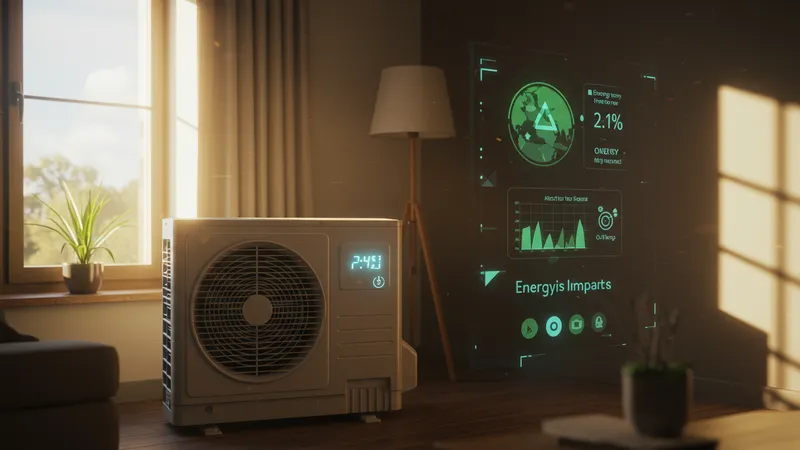
Here’s a shocking twist: while air conditioners cool our homes, they might be warming the planet further. Global dependence on air conditioning devices is expected to triple by 2050, dramatically altering our environment. Yet, they remain indispensable. But that’s not even the wildest part…
You might think air conditioners just provide a comfortable chill, but they could be silently altering your indoor air quality, impacting your health in unforeseen ways. Researchers have discovered that poorly maintained units can harbor allergens and bacteria. This revelation might make you reconsider how you manage your indoor environment. But that's just scratching the surface...
What happens next shocked even the experts: a radical design innovation is set to revolutionize the way we think about air cooling. Could this be the next big leap in fighting climate change while keeping us comfortably cool? Brace yourself for an unexpected journey into the future of air conditioning!
Air conditioners might be essential for our comfort, but they come with a hidden cost to our environment. As they demand more electricity, our collective carbon footprint increases. This is particularly alarming when considering the predicted tripling of global usage by 2050. The environmental implications are massive, pushing scientists and activists to seek sustainable solutions.
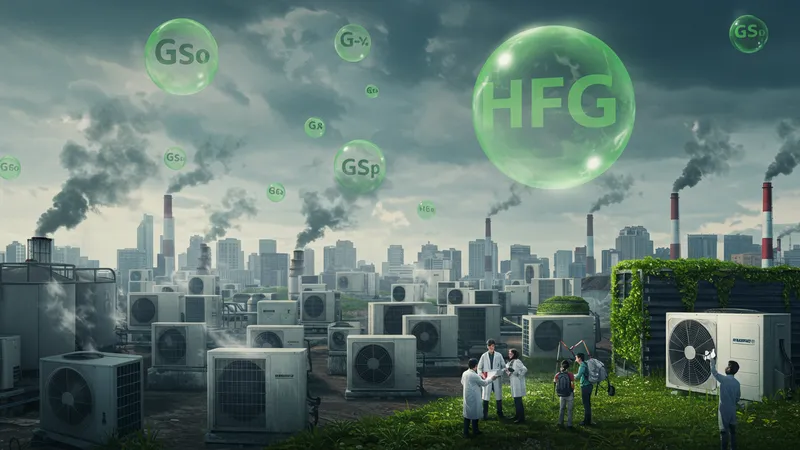
Many of these units use hydrofluorocarbons (HFCs), powerful greenhouse gases that contribute to global warming. The Montreal Protocol addresses this issue, aiming to phase out HFCs and replace them with more eco-friendly alternatives, but will users and manufacturers adapt quickly enough? The race is on, but hold on, there's more...
Intriguingly, newer models are incorporating smart technology that automatically adjusts settings based on room occupancy and outdoor temperature. This innovation not only improves efficiency but significantly reduces energy consumption, offering a glimmer of hope for eco-conscious consumers. Yet, is this upgrade readily available to all?
Despite advancements, older units continue to operate inefficiently, exacerbating energy issues. Transitioning from old to new technology isn't as smooth as it might seem, with costs and awareness posing significant challenges. What you read next might change how you see this forever.
Think air conditioning is always good for your health? Think again. While these systems offer refuge from stifling heat, they might also be circulating allergens, bacteria, and mold. Poor maintenance is the chief culprit, leading to poor indoor air quality that can exacerbate respiratory issues and allergies.

Research reveals an increased risk of sinus congestion, headaches, and even the common cold in environments with poorly maintained air conditioning systems. Further complicating matters, drastically cooled environments lead to greater discomfort when moving between extreme temperatures indoors and outdoors. But there’s one more twist...
Proper usage and regular maintenance can transform your unit from a health hazard into a beneficial asset. For instance, using units with built-in air purification can make a significant difference. Despite this, misinformation remains widespread, leaving many users unaware of safer practices.
Emerging trends in air conditioning design promise to tackle these issues head-on. Forward-thinking companies are integrating advanced filtration and self-cleaning technologies, aiming to ensure that air conditioners become allies in safeguarding our health. But could new designs inadvertently introduce other complications?
As we strive for sustainability, air conditioners are undergoing a transformation. Enter energy-efficient models that have reshaped perspectives on home cooling. These units can alleviate the environmental burden by consuming less electrical power while providing optimal cooling comfort.
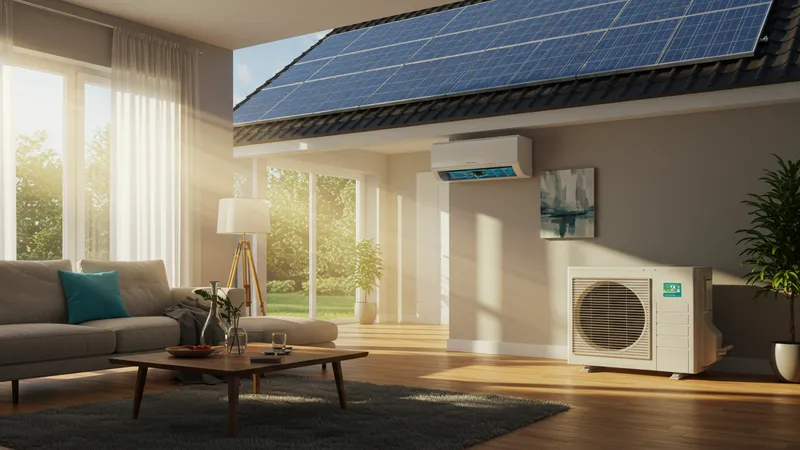
Solar-powered air conditioners have emerged as game changers, harnessing renewable energy to fight the heat while saving on electricity costs. Although the initial investment is substantial, the reduction in monthly utility bills and minimized ecological impact often proves rewarding over time. Still, there's more to consider...
It's not just about integrating solar panels. Smart grid technologies are enabling air conditioners to work in harmony with our energy infrastructure, automatically reducing usage during peak times. This not only eases the stress on power grids but also reduces costs for consumers. Yet, is this tech enough to overhaul traditional practices?
The market is seeing an influx of energy-efficient models tailored to consumer needs, but widespread adoption faces hurdles like cost, accessibility, and consumer awareness. As companies and governments push for more eco-friendly innovations, the air conditioning landscape is poised for a radical overhaul.
Cool comfort comes at a price, not just environmentally but also financially. The cost of running air conditioners can be substantial, impacting household budgets significantly, especially in regions with extended periods of extreme heat. Understanding these economics is crucial for sustainable living.
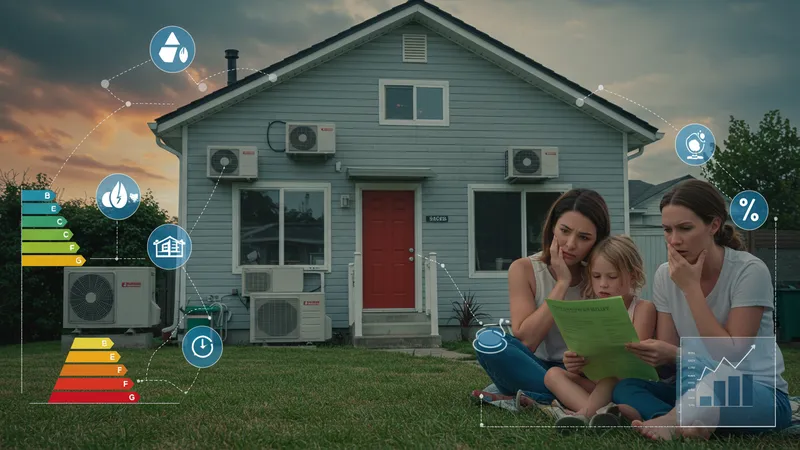
Consumer confusion over energy ratings and efficiency standards leads to suboptimal purchase decisions that might result in higher electricity bills rather than savings. Governments encourage energy-efficient upgrades with incentives and rebates, but are these programs truly accessible to all?
Despite government incentives, the initial outlay for an energy-efficient unit may pose a barrier for many. Education and awareness programs could play a vital role in making these technologies more mainstream. Could restructuring these strategies open the doors for broader adoption?
Innovative financing options are beginning to take shape, allowing consumers to transition to effective, newer units without bearing the full initial cost upfront. However, these solutions are not yet widespread, and consumer skepticism remains a significant barrier. But what lies ahead could redefine these economics forever.
The air conditioning we take for granted today has its roots in innovation and necessity dating back to ancient history. Even the Romans, ambitious builders they were, employed aqueducts and ventilation systems to cool their palatial homes.
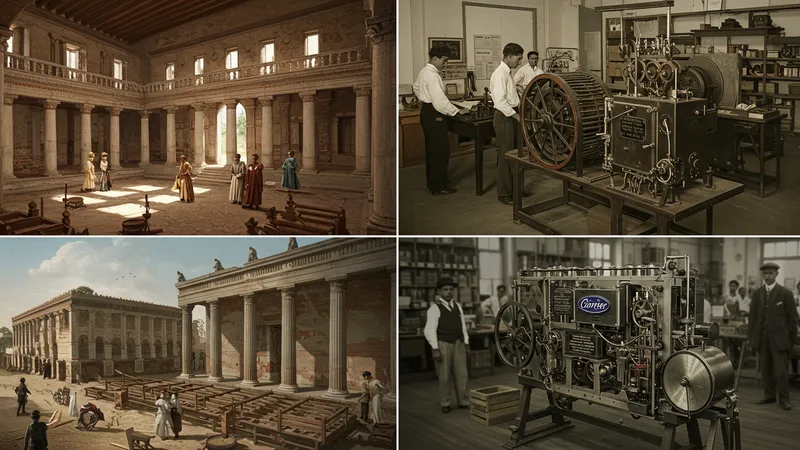
The modern genesis of air conditioning began in the early 1900s with Willis Carrier, who invented the first machine designed to control humidity and temperature for a printing plant. This technological breakthrough set the stage for a new era of comfort in personal and professional spaces. But there’s more to this story...
During the mid-20th century, air conditioning became synonymous with progress. As urban populations grew, so did the reliance on mechanical cooling systems in homes and offices. This transformation wasn't just about comfort—it also dramatically shaped lifestyles and architectural designs.
From luxury to necessity, air conditioning has become an integral part of daily life. Yet, as we've grown to depend on it, the challenges of balancing comfort with sustainability have emerged. Who could have predicted that systems designed for convenience could become critical components in the fight against climate change?
With global temperatures on the rise, the quest for innovative air conditioning solutions has never been more urgent. Companies are experimenting with cutting-edge technologies that aim to regulate temperature more efficiently and sustainably.
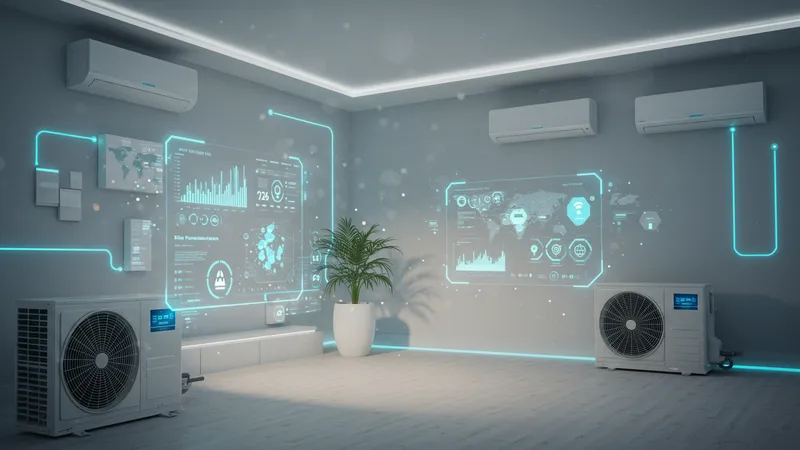
Imagine air conditioners that not only cool spaces but also purify the air, provide real-time reports on air quality, and automatically adjust settings based on environmental conditions. The introduction of AI and IoT in these systems marks a giant leap forward in smart home ecosystems. But that's only part of the story...
Hybrid systems are another exciting development, combining traditional cooling with alternative energy sources like solar power. These systems promise to reduce dependency on the grid, offering savings and reliability even during peak energy demand times.
The evolution of these technologies is poised to redefine air conditioning's role in our lives. As we march towards a more sustainable future, these innovations carry the dual promise of reducing our environmental footprint while enhancing the quality of life.
Air conditioning has shaped, and will continue to shape, urban environments in profound ways. The rise of high-rise buildings and densely populated urban areas have cemented the importance of efficient cooling systems.
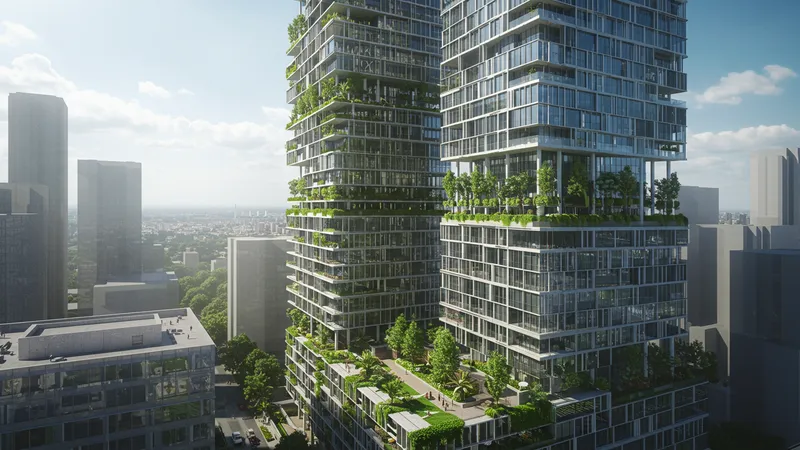
Architects and urban planners are increasingly considering passive cooling techniques that minimize energy use without sacrificing comfort. Green buildings incorporate design elements like strategic shading, natural ventilation, and heat-reflecting materials, aiming to reduce dependency on artificial cooling.
Meanwhile, cities are implementing regulations to improve building designs for energy efficiency. As awareness grows, urban planning is steering towards a future where cities can remain cool without compromising sustainability.
These changes are more than just trends—they represent a critical shift towards responsible development where air conditioning plays a key role in both maintaining comfort and managing ecological footprints.
The integration of air conditioning into smart home ecosystems represents a transformative leap forward. Smart thermostats, like those from Nest or Ecobee, learn daily routines and adjust cooling schedules to optimize both comfort and efficiency.
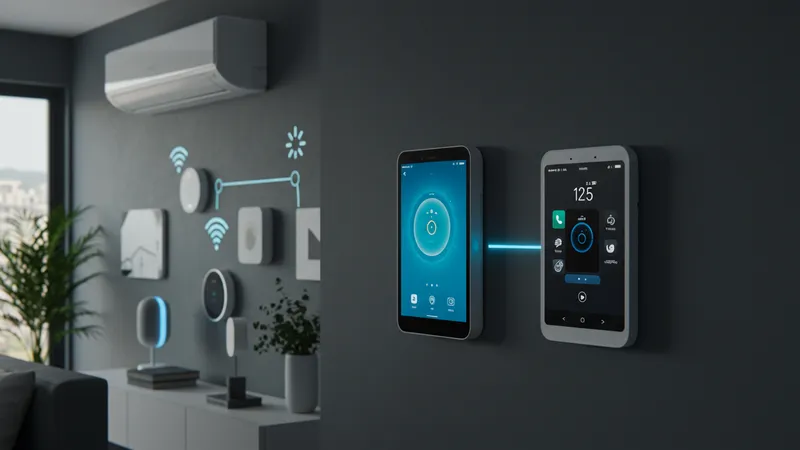
These systems don’t just automate temperature controls—they offer users detailed insights into energy consumption, sending alerts for maintenance or energy-saving opportunities. By syncing with other smart devices, they create a seamlessly controlled home environment that saves energy and enhances convenience.
But automation comes with its own set of challenges, particularly around data privacy and system security. As more devices connect online, vulnerability risks increase. The race to secure smart homes against potential breaches is on the rise.
The smart revolution is just beginning. As technologies evolve, so will their applications, promising a future where air conditioning is not only efficient but an integral part of a broader, interconnected smart lifestyle.
Air conditioning has fundamentally changed how people live and work, profoundly impacting cultural norms and habits worldwide. From workspaces to homes, the guarantee of a cool environment has become a non-negotiable part of the modern lifestyle.
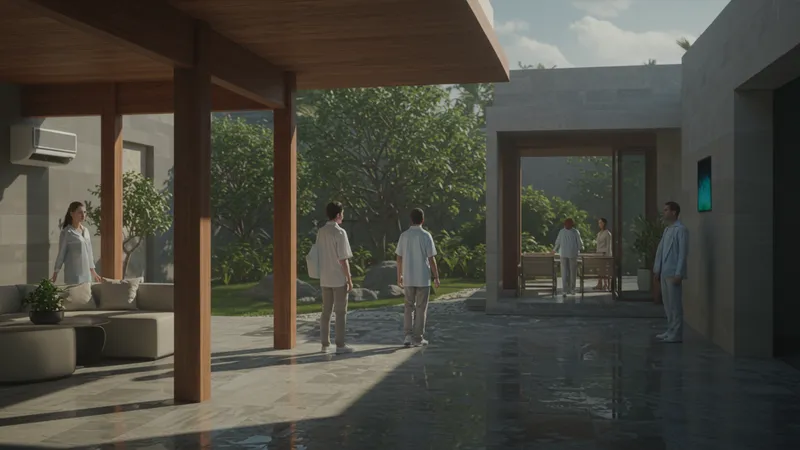
This transition has influenced everything from architectural designs to clothing industries, with fashion adapting to accommodate both indoor and outdoor climates. However, reliance on artificial cooling has prompted reflections on whether convenience justifies the environmental impact.
In the workplace, productivity studies highlight the significant benefits of air conditioning, with temperature-controlled environments leading to improved work output and comfort. Employers have had to factor climate control into their building designs and operations.
The cultural integration of air conditioning reflects broader priorities of comfort and efficiency, but it also calls for greater awareness of sustainable practices. How societies continue to balance these needs with environmental responsibility remains an unfolding narrative.
While providing physical comfort, the psychological impacts of air conditioning are an intriguing area of research. Studies suggest that fresh air contributes positively to our mental health and well-being, whereas reliance on air conditioning might limit exposure to natural environments.
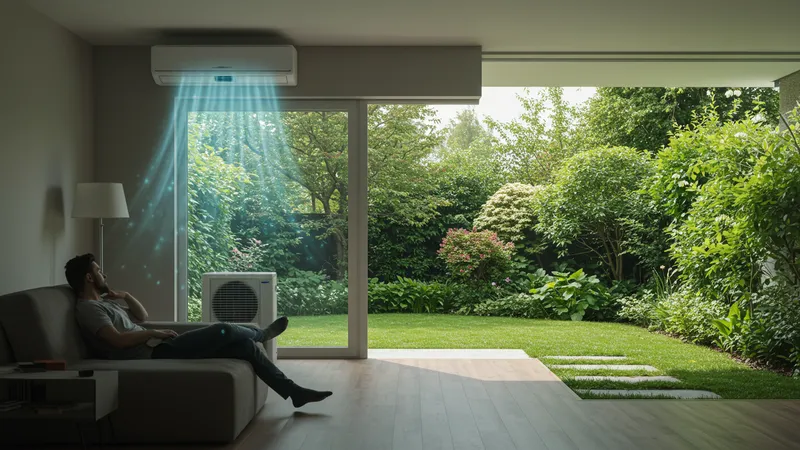
There's an ongoing debate over the effects of transitioning between extreme temperatures, as abrupt changes can not only disrupt physical health but also influence mood and cognitive performance. How do these changes manifest in daily life?
Remote work, now more prevalent than ever, has heightened the importance of creating comfortable, stress-free home environments. Air conditioning plays a central role, but its psychological effects require mindful consideration of usage and setting.
Understanding this dimension of air conditioning can guide better practices for enhancing workplace and home environments, promoting both mental well-being and productivity. As we come to grips with its implications, keeping mindful of our indoor climate's impact is key.
Access to air conditioning in developing countries is not merely a comfort but increasingly a necessity as global temperatures rise. However, cost and infrastructure limitations often prevent widespread access, posing a challenging dilemma.
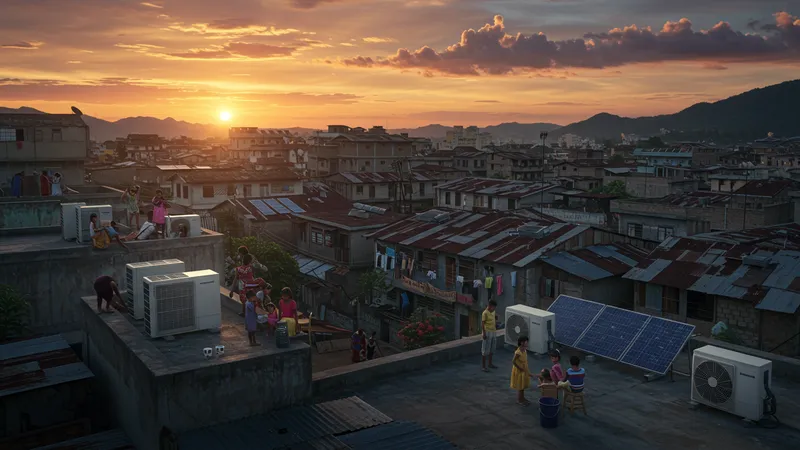
Initiatives to provide affordable cooling solutions are underway, targeting energy-efficient and cost-effective models suitable for regions with less-developed power grids. These efforts are pivotal in improving health and living conditions, particularly in areas prone to extreme heat.
International organizations are collaborating with local governments to promote access and innovation, aiming to balance environmental concerns with the urgent need for cooling. While progress is being made, much remains to be done to ensure equitable access.
The rapid development of cooling technologies presents both opportunities and challenges in developing countries. Addressing these concerns sustainably is crucial for fostering improvements in quality of life without exacerbating environmental impacts.
The world of air conditioning is on the brink of monumental change, driven by trends such as AI integration, green tech, and consumer demand for smarter solutions. These innovations promise to redefine the industry's future.
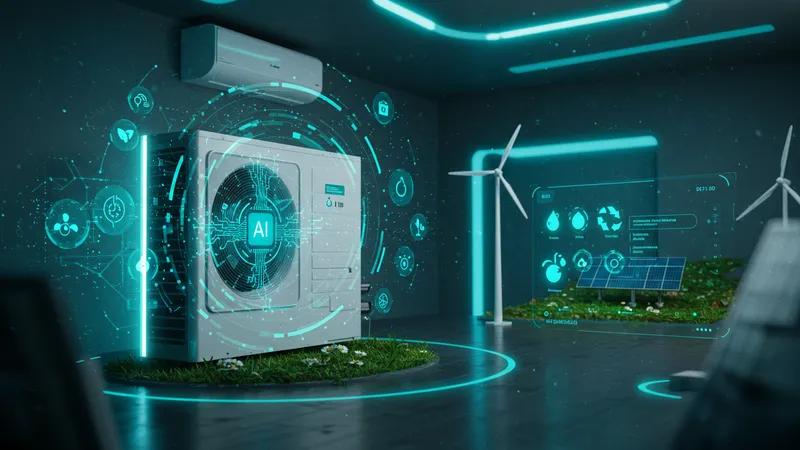
As AI continues to evolve, its application in HVAC systems presents opportunities for unparalleled efficiency, anticipating user preferences and adjusting settings automatically. However, it also raises questions about privacy and data use.
Meanwhile, chemical advancements are paving the way for environmentally friendly refrigerants, which could significantly reduce the ecological footprint of cooling systems worldwide. But will these innovations be scalable and cost-effective enough to replace current technologies?
The future of air conditioning holds promise and complexity, demanding industry, governments, and consumers collaborate towards sustainable evolution. These emerging trends are not just shaping air conditioners but leading a broader shift towards integrated, intelligent climate solutions.
The evolution of air conditioners from simple cooling units to smart, sustainable devices offers valuable lessons in innovation and adaptation. As consumers, recognizing the intertwined impact on environment, economy, and personal health can guide smarter choices.
Share this article with others who care about a sustainable future or bookmark it for insights and tips on embracing eco-friendly technology. The journey of air conditioning reveals much about our progress and the challenges we must address on our way to a greener, cooler tomorrow.